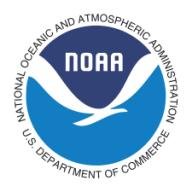‘Partners in the Value Chain’ was the central theme of IFFO’s Annual Conference held recently in Buenos Aires and attended by nearly 300 delegates representing the global fishmeal and fish oil industry as well as related industries from 26 countries.
A series of workshops explored the practical aspects of partnership within the food chain along which IFFO members operate. Guest speakers included Alfonso Velásquez - the Minister of Production in
The producers and their value chain partners, – including brokers and traders, shippers, feed manufacturers, farmers, laboratories etc., - together reviewed current market issues. The producers concluded that “in the longer term we remain in a scarcity-driven market in supply/demand terms” due to ever growing controls on a limited primary resource. At the same time there was market concern about trade restraints, especially in
THE MARKETPLACE
Landings
Total IFFO-5 landings (i.e. from
Exports
In spite of a very complex trading situation, particularly due to extremely unfavourable freight conditions, exports will reach 2.7 million tonnes in 2004, up 10% over the low year 2003. However, the market has shown rather contrasting situations. Exports to Asia have been particularly buoyant with the three largest markets (as usual
Production - meal and oil
2004 fishmeal production of the IFFO-5 producers will reach 3.4 million tonnes. If we take into account exports of 2.7 million tonnes and an ever-increasing home consumption of 840,000 tonnes, of which Chile, Norway and Denmark share the large majority, we expect physical stocks at the end of the year of around 670,000 tonnes, - more or less in line with average levels.
IFFO-5 fish oil production in 2004 is estimated at 640,000 tonnes, - up 20% over 2003. Once again, production is being fully absorbed by demand whether on spot position or on longer term contracts.
An early 2005 forecast by the producers shows total IFFO-5 fishing expected to reach only 13.9 million tonnes which is about 9% below 2004 and about 10% below the average for 1999/2003. For
A further issue considered at
The meal and oil products from feed fisheries are natural and balanced with notable health benefits from their high omega-3 fatty acid content. This contributes directly to human health via fish oil rich supplements, and then indirectly through consumption of food products from animal fed on diets including fishmeal and oil. Farm livestock and companion animal health and welfare are also enhanced by consumption of fishmeal and oil. The conference foresaw a greater industry focus on added value niche markets for nutritional supplements and health foods as well as speciality animal feed products. This would not be possible without the considerable strides already being made by producers to achieve quality accreditation and downstream traceability.
During her speech to the conference, IFFO’s President, Sólveig Samúelsdóttir took the opportunity of expressing the Organisation’s gratitude to Stuart Barlow for his distinguished contribution over 25 years as Director General of IFOMA, then IFFO, and to welcome his successor, Jonathan Shepherd.
IFFO
The IFFO-5 (











